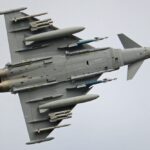French defense officials have confirmed that an eight-year program led by Airbus Defence and Space will stand up a dedicated cyber-training ecosystem for the Ministry of the Armed Forces, bringing fresh resources to the Cyber Defence Command (COMCYBER) less than a week after the Directorate General of Armaments (DGA) gave the final green light.
Airbus heads a consortium with French specialist Neverhack under a framework contract that covers the full life-cycle of the learning environment: design, hardware build-out, scenario authoring, and long-term platform support. According to industry observers, the agreement also obliges Airbus to embed an open interface policy so new threat modules can slot in without overhauling core code.
Key deliverables include:
- Scalable CyberRange servers able to replicate joint and combined networks;
- Instructor tools for real-time traffic injection and after-action metrics;
- Remote access nodes for units preparing overseas rotations.
Construction crews will break ground next month at the Cyber Defence Academy campus outside Rennes. The site will host a secure hall for mission-network replicas and a separate “gray space” where red-team operators test exploits before pushing them into live drills. Defense officials note that the hall’s network fabrics mirror the fiber topology used in operational command posts, so students transition to the field with minimal re-config.
Curriculum planners expect trainees to face the full spectrum of digital threats from the outset. Course designers list malware chains, distributed-denial attacks, credential stuffing, data exfiltration, and influence operations among the first-wave scenarios. Each exercise layers social-engineering cues over technical indicators to force students to weigh strategic context, not just packet traces.
The backbone for every drill is the latest release of Airbus’s CyberRange architecture. Trainers can spin up a copy of an army brigade’s C4ISR stack in minutes, swap in dissimilar radio protocols, or throttle satellite links to simulate degraded space support. Artificial-intelligence plugins supplied by small and mid-sized French firms score participant decisions against observed threat behaviors, giving instructors granular insight without slowing play.
Program managers built the schedule around France’s high-intensity exercises. Orion will supply battlefield injects that fuse electronic, space, and cyber effects, while DefNet pushes blue-team cells to respond to twenty or more simultaneous incidents. Airbus coders are already mining data from the most recent iterations to seed next year’s courseware so lessons translate directly to operational doctrine.
Inside the syllabus, six career tracks replace the broad “cyber operator” label. Incident responders drill rapid containment; reverse engineers dissect zero-day payloads; mission planners learn how to weave cyber actions into joint targeting cycles. Ethical hackers certify every playbook before students take it to the range, keeping training events inside legal boundaries without dulling creativity.
Program timelines shared with Defense-Aerospace indicate that the first cohort of sixty operators will start phase-one classes in January 2026. Airbus will deliver the final tranche of range hardware by March 2027, but software updates remain funded through the eighth program year, allowing threat libraries to evolve in step with real-world intelligence.
Financial terms were not disclosed; nevertheless, market analysts cap the package at roughly €250 million, a figure that aligns with recent European cyber-range procurements of similar scope. Officials stress that up to fifteen percent of that total is earmarked for small enterprises contributing analytics, visualization, or threat-intel feeds, a point meant to spur French tech growth beyond the defense primes.
The initiative dovetails with Paris’s 2024-2030 Military Programming Law, which elevates cyber readiness to the same tier as air and maritime power. By unifying what had been fragmented service-level projects, the ministry hopes to shorten the time between tool discovery, doctrine writing, and operator certification.
Allies are watching the model closely; NATO Cyber Command already exchanges liaison officers with COMCYBER, and planners in Madrid and Rome have signaled interest in plugging students into selected Airbus-run evolutions once security vetting hurdles clear. Such cross-feeds would cut duplication costs while sharpening coalition playbooks for gray-zone contests.
Airbus brings a decade of experience running CyberRange instances for ministries, energy networks, and telecom operators, yet the French armed-forces project is its first to integrate tactical Security Operations Centers (SOC) directly into course flow. Mobile SOC kits will shadow regiment-level maneuvers so data generated in the field loops back into the academy within hours, compressing feedback cycles that used to take months.
Senior officials inside COMCYBER describe the training center as the missing hinge between policy and practice. They argue that decentralized unit initiatives produced uneven skills, whereas the new framework guarantees every specialist meets a common performance standard audited by external evaluators.
Our analysis shows that the program’s emphasis on live-fire realism, modular design, and SME participation offers a template other European forces can scale without wholesale platform rewrites, potentially shifting the regional cyber-training market toward open architectures over proprietary stovepipes.
A formal ribbon-cutting is slated for late autumn, pending site-acceptance tests and network hardening checks. Until then, Airbus engineers will continue lab work on scenario engines while instructors refine lesson plans. By the time the first class signs its graduation certificates, the French military expects to field a cyber cadre that can hunt, disrupt, and recover at the tempo demanded by modern joint operations.
REFERENCE SOURCES
- https://www.marketscreener.com/news/latest/Airbus-E250m-contract-to-train-French-cyber-warriors-50480359/
- https://www.janes.com/osint-insights/defence-news/c4isr/airbus-signs-eight-year-contract-with-frances-dga-for-training-cyber-experts
- https://govconexec.com/2025/07/french-military-airbus-cybersecurity-training-center/
- https://www.airbus.com/en/newsroom/press-releases/2025-07-airbus-to-train-cybersecurity-experts-for-the-french-ministry-of
- https://militaryembedded.com/cyber/cybersecurity/cybersecurity-training-platform-to-support-french-armed-forces-under-airbus-contract



